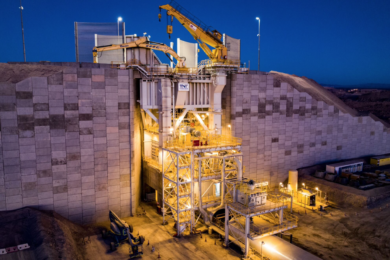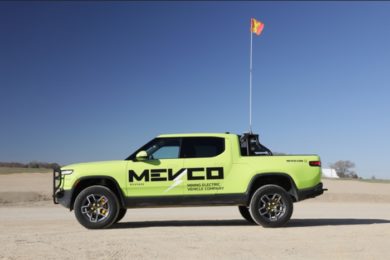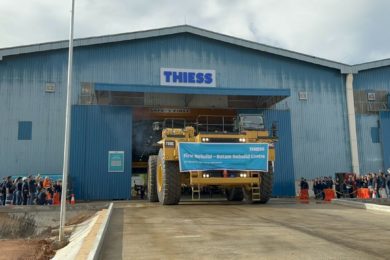Mining machinery manufacturers from Germany are back on track, with incoming orders increasing by 45% in the first half of the year. Closer cooperation with Australia is set to bring further growth. Following a sharp decline in turnover in recent years, incoming orders from abroad went up 50% in the first six months of this year compared to the same period the previous year. While domestic orders slumped by 11%, the total number of orders in the first half of the year increased by 45%, says Klaus Stöckmann, Deputy Managing Director of VDMA Mining.
In light of the increase in raw material prices in many areas, the Association expects this positive trend to take hold. For the current year, VDMA forecasts project only a minor increase in turnover. According to Stöckmann, this is due to the relatively long periods of up to one and a half years that can pass between the receipt of an order and the delivery of equipment and systems for raw material extraction – and thus the receipt of payments. “In 2018, turnover will be increasing again as well,” Stöckmann projected.
While strong gains were recorded in exports to the EU and in particular to the USA, exports to formerly important markets such as China and Russia declined. With the export quota climbing from 84 to 92% (2016) since 2006; the domestic market in Germany is becoming less and less important for manufacturers. Stöckmann cited the phase-out of hard coal production planned for the end of next year as the main reason for this development. The situation with brown coal, on the other hand, is quite different. With an annual capacity of about 180 Mt, Germany continues to be the largest brown coal producer in the world. Furthermore, Germany ranks among the five largest global producers of potash and salt, with around 6 Mt of potash and approximately 32 Mt of salt.
German manufacturers anticipate additional growth stimuli to come from Australia in particular. In March, both countries signed a Memorandum of Understanding and agreed on strengthening cooperation in the energy and raw materials sectors. The first bilateral talks are scheduled to take place during the Asia-Pacific Regional Conference held in Perth, Australia on November 3-5. The schedule includes two working groups, comprised of representatives from industry, politics, administration and associations. The meetings are to take place every year. “This dialogue will help our industry to continue its success story in Australia,” summarises Stöckmann.
The VDMA (Mechanical Engineering Industry Association) represents more than 3,200 mostly medium-sized companies in the capital goods industry, making it the largest industry association in Europe.










